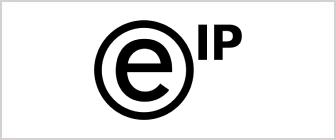IP STARS has compiled all the available English court judgments in the SEP and FRAND dispute between Optis and Apple.
The standard essential patent (SEP) dispute between Optis and Apple started in 2019 when Optis sued Apple alleging infringement of eight telecoms patents. The dispute was split into six trials, all of which have now been decided by the Patents Court. The England and Wales Court of Appeal has been involved in five of the judgments, one of which is expected to be reviewed by the UK Supreme Court in 2024.
So far, the dispute has generated mixed results for the parties. The latest judgment, which was handed down last month, is the third FRAND rate ruling by an English court. The legal representatives in this dispute are ranked for patent litigation in the UK (England) and recognised in this year’s Managing IP Awards programme for their work last year.
The trials and the results
Trials A – D were the technical trials to deal with the validity, essentiality, and infringement of the patents in question, while Trial E was for the court to determine the global FRAND rate and deal with related competition law issues. In Trial F, the court had to determine whether an SEP holder is entitled to an immediate injunction against an implementer who has not committed to taking a licence to be determined by a court.
Below are the results of the technical trials and links to all the available court judgments or information concerning this dispute. We will update table 2 and this article when there are new developments.
Table 1
Source: Smith J’s judgment
Table 2
|
Trial |
First Instance |
Court of Appeal |
Supreme Court |
|
A |
here (Apple partly successful) |
N/A |
|
|
B |
here (dismissed Apple’s appeal) |
N/A |
|
|
C |
here (Optis’ appeal successful) |
N/A |
|
|
D |
here (dismissed Apple's appeal) |
N/A |
|
|
E |
Unknown |
N/A |
|
|
F |
here (dismissed all appeals) |
here* |
*We understand that the Supreme Court is likely to hear the appeal in early 2024. It remains to be seen if Lord Kitchin, who will retire in September 2023, will be invited to the bench for this appeal.
The latest judgment
Trial E judgment is the latest judgment in the dispute, which was officially handed down by Mr Justice Marcus Smith on May 10, 2023. However, due to confidentiality reasons, certain parts of his judgment were redacted and a public, non-confidential version was made available on HMCTS’ database on June 7, 2023 (for a fee of £11, you can obtain an official copy of a judgment from HMCTS here).
We have made this version publicly available because it is clearly marked “Public, non-confidential version of the decision in Optis v Apple” and anyone can obtain it from the court.
The FRAND rate and conduct
The judgment is 283 pages long and includes an explanatory note about the redactions. In summary, Smith J decided that the annual worldwide rate that is FRAND should be US$5.13 million. He also dealt with the terms of the licence, past infringement, and interest rate (see paragraphs 488 - 505). On the competition law issues, the judge reviewed the conduct of the parties during their negotiations and, despite his criticisms, did not find an abuse of a dominant position and hold out or hold up (see paragraphs 320 – 392). Smith J is a commercial law specialist and the President of the Competition Appeal Tribunal, so his ruling will be instructive.
Extensive confidentiality
SEP and FRAND disputes involve sharing sensitive commercial information and parties will argue over them and thus generate costs. Smith J, together with the parties, agreed to redact certain confidential information in his judgment in the short-term before a “more readable version” can be released in the future. The judge, however, commented on the confidential information, the cost of managing it, and the redactions in his judgment (see paragraph 507). Smith J noted: “I do not know how much the confidentiality regime in these proceedings cost. On any view it was over-extensive.”
A publicly (un)available judgment
As my colleague Rory O’Neill noted in his opinion piece, some would find it confusing or unsatisfactory that the redacted version is still not publicly available on BAILLI or The National Archives (TNA), the organisation now responsible for archiving and publishing court decisions. Perhaps the TNA received a copy (though Smith J did not mention this) but is still processing it for publication, or maybe the TNA did not receive it because of the judge’s intention to share a “more readable” version.
Other Patents Court judges have faced confidentiality challenges in SEP disputes, but their judgments have been made publicly available. Birss J, as he then was, released two public versions of his landmark Unwired Planet International v Huawei decision in 2017 (first public version in April and final version in November). Mr Justice Mellor experienced the same in InterDigital v Lenovo this year and promised to publish a less redacted version after hearing the parties on confidentiality. Looking at the Chancery Guide for judgments, it is unclear what has happened in Optis v Apple.
We will keep an eye out for the final public version of Trial E’s judgment, which we hope will be published on the website of the TNA and/or BAILLI. Unfortunately, many may well have moved on from the UK’s third FRAND rate ruling when it eventually comes out.
Legal representatives
EIP and Osborne Clarke represented Optis Cellular Technology and Unwired Planet International
WilmerHale represented Apple



